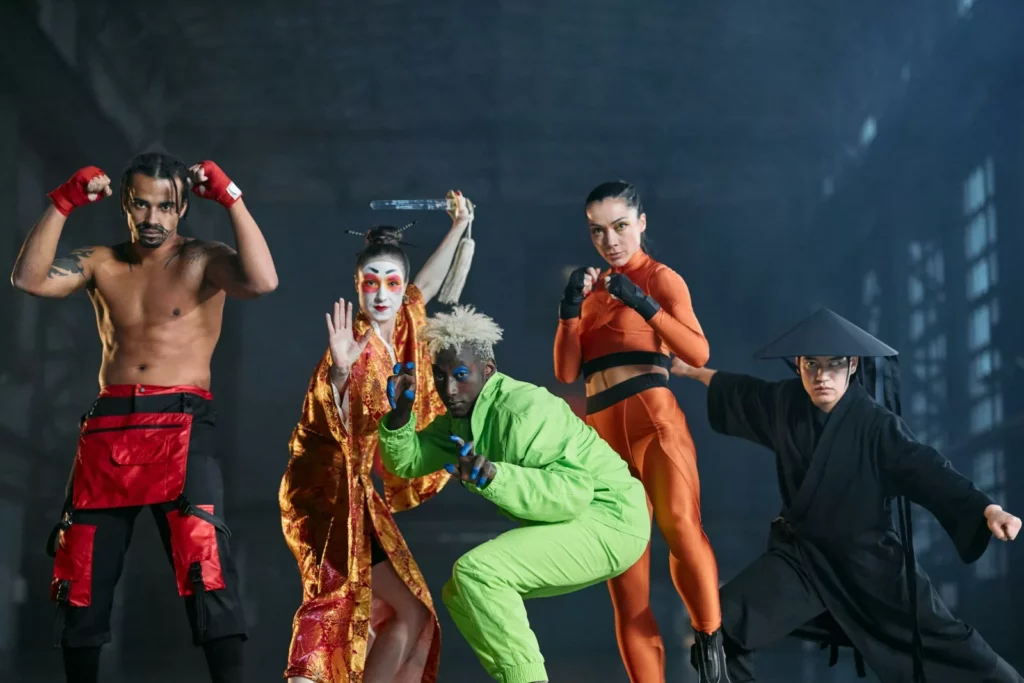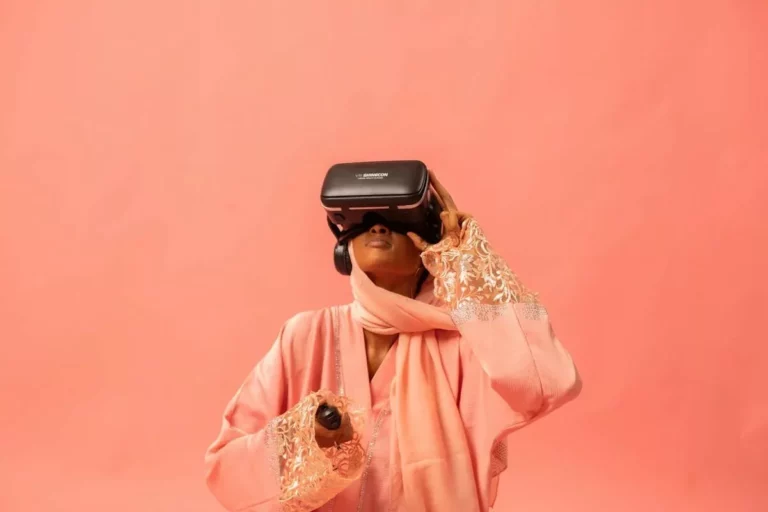In today’s entertainment landscape, diverse talents are not just a trend; they are revolutionizing how stories are told and experiences are shared. With 39% of the U.S. population identifying as part of a minority group, the demand for representation and inclusivity in movies, music, and the arts has never been more critical. This influx of varied perspectives enriches the cultural fabric we consume, fostering empathy and understanding among audiences. As we delve deeper into the world of diverse talents, we uncover the profound impacts they have across different categories of entertainment, shaping narratives that resonate on personal and societal levels. From powerful performances to groundbreaking art, diverse talents play a pivotal role in creating a more vibrant and inclusive industry.
Understanding Diverse Talents in Entertainment Industry
Diverse talents encompass a wide range of skills, backgrounds, and experiences that enrich the entertainment landscape. In today’s globalized world, it is crucial for the entertainment industry to reflect the diversity of its audience. This representation not only makes for richer storytelling but also ensures that various voices are heard and appreciated.
Importance of Representation in Entertainment
Representation matters significantly in entertainment for several reasons:
- Increased Visibility: Diverse talents help to raise awareness about different cultures, lifestyles, and experiences.
- Authenticity: Including a variety of voices leads to more authentic stories and portrayals.
- Audience Connection: When audiences see themselves reflected in various forms of entertainment, it fosters a deeper connection and engagement.
The Spectrum of Talent: Categories in Entertainment
Diverse talents can be found across many categories within the entertainment industry, contributing their unique perspectives and experiences. Here’s a closer look at some key areas:
- Music:
From hip-hop to classical, diverse artistes are creating sounds that speak to various cultural backgrounds. Genres like reggaeton, K-pop, and Afrobeats highlight the global palette of musical talent. - Film:
Films are increasingly featuring a varied cast of actors, directors, and screenwriters who bring new narratives to the forefront. Diverse talents in film help to challenge stereotypes and open dialogues about societal issues. - Performing Arts:
In dance, theater, and comedy, diverse talents showcase different cultural traditions and contemporary issues, engaging audiences with thought-provoking performances. - Visual Arts:
Artists and designers from various backgrounds are pushing boundaries in visual storytelling, leading to innovative exhibitions and inspiring works.
The Impact of Diverse Talents on Audience Engagement
Diverse talents are vital in enhancing audience engagement. This is achieved through:
- Broader Appeal: Unique perspectives resonate with a wider demographic, attracting diverse audiences to various entertainment forms.
- Enhanced Storytelling: Varied narratives enrich the storytelling experience, providing depth and relatability.
Challenges Faced by Diverse Talents
Despite the importance of diversity in entertainment, many talents face significant challenges, such as:
- Barriers to Entry: Limited access to opportunities for marginalized groups hampers their chances for success.
- Stereotyping: Typecasting remains a pervasive issue, affecting the roles diverse talents are offered.
For a more in-depth look at how the industry is evolving, you can explore Variety.
Strategies for Promoting Diverse Talents
Promoting diverse talents requires deliberate action and support from all industry stakeholders. Consider these strategies:
- Support Networks: Organizations that focus on the development of diverse talents can facilitate opportunities and connections.
- Mentorship Programs: Offering mentorship can guide emerging talents and help them navigate their careers effectively.
By embracing and promoting diverse talents, the entertainment industry can create richer experiences for audiences and ensure that everyone’s story is heard.
The Future of Diverse Talents in Entertainment
As the entertainment industry evolves, the significance of diverse talents is becoming more pronounced. The push for greater representation is not just a trend; it is an essential movement that seeks to redefine the narratives portrayed on screen and stage.
Trends and Predictions
With the rise of social movements advocating for equality and representation, diverse talents are increasingly positioned at the forefront of entertainment. Key trends include:
- Content Curation: Platforms are focusing on curating content that reflects a variety of backgrounds and experiences, highlighting diverse talents.
- Collaborative Projects: Collaborative efforts across different artistic disciplines are resulting in innovative works that showcase diverse voices.
- Investment in Inclusivity: More studios and production companies are investing in projects led by diverse talents, recognizing the value it brings to storytelling.
Encouraging Inclusivity in Production and Casting
To foster a more inclusive environment for diverse talents, the industry must implement effective strategies during production and casting processes. These strategies may include:
- Diversity Training: Providing training for executives and casting agents to understand the importance of inclusivity.
- Inclusive Hiring Practices: Actively seeking diverse talents in all roles, from on-screen performers to behind-the-scenes staff.
- Community Engagement: Involving diverse communities in the development and feedback processes of projects to ensure authentic representation.
The Role of Audiences
As advocates for diverse talents, audiences play a crucial role in shaping the future of entertainment. By:
- Supporting Diverse Content: Watching and promoting films, music, and performances from a variety of artists can drive demand for more diverse talents.
- Engaging in Conversations: Discussing the importance of representation can create awareness and encourage industry stakeholders to prioritize inclusivity.
For further insights into the changing dynamics of the entertainment landscape, visit Hollywood Reporter.
In summary, the future looks promising for diverse talents in the entertainment industry. By embracing inclusivity and advocating for varied representation, we can contribute to a richer and more diverse cultural narrative.
Conclusion: Celebrating and Supporting Diverse Talents
As we reflect on the journey of diverse talents in the entertainment industry, it’s important to recognize their essential role in shaping cultural narratives and creating captivating artistic expressions. Celebrating diversity not only enriches our entertainment experiences but also fosters understanding and connection across varied communities.
Call to Action for Audiences
To truly support diverse talents, audiences can take meaningful actions:
- Explore New Genres: Step out of your comfort zone to discover music, films, and performances by diverse artistes.
- Attend Live Events: Support local and international events that showcase diverse talents, allowing these artists to gain visibility and opportunity.
- Engage on Social Media: Share and promote the works of diverse talents on social platforms to amplify their reach.
The Role of Industry Stakeholders
Industry stakeholders also have a vital role in championing diverse talents by:
- Creating Opportunities: Studios and production companies should look for and invest in projects featuring diverse casts and crews.
- Highlighting Success Stories: By showcasing successful diverse talents, they can inspire a new generation of artists to pursue their dreams.
Ultimately, the pursuit of diversity in entertainment is a collective effort that requires commitment from all parties involved. By acknowledging and supporting diverse talents, we can pave the way for a richer and more inclusive industry.
For more information on diversity initiatives in entertainment, you can visit Warner Bros. Entertainment.
Challenges Faced by Diverse Talents
Despite the growing recognition of the importance of diverse talents in the entertainment industry, significant challenges remain. Understanding these obstacles is crucial for creating effective solutions that empower these artists and facilitate their success.
Barriers to Entry
Many talented individuals from diverse backgrounds encounter barriers that can hinder their entry and progress in the industry:
- Limited Access to Resources: Emerging talents often lack access to supportive networks, funding, and mentorship opportunities that can help them navigate their careers.
- Negative Stereotypes: Cultural stereotypes can affect how diverse talents are perceived, impacting their chances of being cast in key roles or receiving funding for their projects.
- Inequitable Representation: The underrepresentation of diverse voices in decision-making positions contributes to a lack of awareness about the importance of inclusivity.
Stereotyping and Typecasting
Stereotyping presents a significant challenge for diverse talents, often leading to typecasting, where individuals are confined to specific roles based solely on their background. This not only limits their opportunities but also perpetuates harmful narratives. Key factors include:
- Predictable Narratives: When diverse characters are depicted in cliché roles, it reduces the scope for complex storytelling and dynamic performances.
- Missed Opportunities: Talented artistes may miss out on roles that better reflect their abilities and versatility, resulting in a homogenized industry.
Addressing these challenges requires a concerted effort from industry stakeholders, including producers, directors, and casting agents. By actively working to dismantle these barriers, we can foster an environment where diverse talents are empowered to thrive.
For further insights on the challenges faced by diverse talents, consider visiting the National Endowment for the Arts.
Strategies for Promoting Diverse Talents
To truly harness the potential of diverse talents in the entertainment industry, it is essential to implement effective strategies that promote inclusivity and challenge existing barriers. Here are key approaches that can help foster the visibility and success of diverse talents:
Building Support Networks
One of the most crucial steps in supporting diverse talents is the establishment of support networks that offer resources, mentorship, and opportunities for collaboration. These networks can include:
- Professional Organizations: Groups like the Association of Black Women Historians or the Asian American Performers Action Coalition provide advocacy and resources tailored to diverse artistes.
- Community Events: Local workshops, seminars, and showcases promote talents while creating a sense of community.
Investing in Mentorship Programs
Mentorship is vital for the growth and development of emerging talents. Initiatives can include:
- Pairing Young Talents with Industry Veterans: Experienced professionals can provide valuable guidance and insights on navigating the industry landscape.
- Workshops and Training Sessions: These can focus on skill development and industry-specific knowledge that diverse talents may otherwise lack access to.
Encouraging Inclusive Hiring Practices
Entertainment companies play a pivotal role in promoting diverse talents through their hiring processes. Organizations should aim to:
- Diversify Casting Calls: Actively seek a range of backgrounds in auditions to ensure a broader representation of voices in productions.
- Engage Diverse Creative Teams: Employing professionals with varied experiences helps create a more inclusive environment and contributes to a richer storytelling experience.
Community Engagement
Involving the community is essential for promoting diverse talents. This can be achieved through:
- Partnering with Local Organizations: Collaborating with local arts organizations can help identify and uplift emerging talents in various communities.
- Feedback and Inclusive Development: Creating channels for dialogue with diverse audience members ensures that their perspectives are considered in production and creative decisions.
By adopting these strategies, the entertainment industry can become a more inclusive space, celebrating the rich tapestry of diverse talents that shape our cultural landscape. For further recommendations on diversity initiatives, consider visiting TechCrunch.
The Impact of Diverse Talents on Audience Engagement
Diverse talents significantly enhance audience engagement within the entertainment industry. By presenting a multitude of perspectives and experiences, these artists captivate a broad spectrum of viewers and listeners. Understanding this impact can help stakeholders appreciate the necessity of inclusivity.
Broader Appeal Across Demographics
The inclusion of diverse talents leads to a richer variety of content that can resonate with different audience segments. Some notable benefits include:
- Cultural Relevance: Stories and performances that reflect various cultural backgrounds allow audiences to connect with content on a personal level.
- Attracting New Audiences: By showcasing diverse talents, entertainment entities can appeal to broader demographics, inviting more viewers and listeners to engage with their work.
Enhancing Storytelling Through Varied Perspectives
Diverse talents contribute unique viewpoints that enrich storytelling. This can manifest in several ways:
- Complex Characters: When diverse artists portray characters informed by their real-life experiences, it leads to deeper and more authentic portrayals.
- Innovative Narratives: Collaborative storytelling between diverse talents can birth original concepts that challenge conventional narratives, offering fresh insights into social issues.
Creating Emotional Connections
When audiences see diverse talents reflected in entertainment, it often fosters emotional engagement. Key aspects include:
- Empathy: Exposure to a variety of experiences allows audiences to build empathy toward individuals from different backgrounds.
- Representation: Hearing diverse voices reinforces the idea that everyone’s story matters, making audiences feel recognized and validated.
In summary, the impact of diverse talents on audience engagement is profound, enhancing emotional connections and narrative depth. Stakeholders in the entertainment industry should prioritize the inclusion of diverse talents to leverage these benefits fully. For more insights on audience engagement strategies, check out Forbes.
The Spectrum of Talent: Categories in Entertainment
Diverse talents span across various categories within the entertainment industry. Each category showcases unique skills, styles, and cultural influences, contributing to a vibrant and multifaceted artistic landscape. Understanding these categories helps to appreciate the extensive range of contributions made by diverse talents.
Music: Genres and Diverse Artistes
Music is a powerful medium that highlights diverse talents from around the globe. From traditional sounds to contemporary hits, the musical landscape is enriched by various cultural influences. Some key points include:
- Genres: Diverse talents have popularized genres such as Reggae, Hip-Hop, K-Pop, and Flamenco, each bringing their cultural richness to the forefront.
- Collaborations: Artists collaborate across genres and borders, creating fusion sounds that reflect a blend of experiences and traditions.
Film: Actors, Directors, and Screenwriters
In the film industry, diverse talents play crucial roles that challenge stereotypes and broaden narratives. Consider the following:
- Casting: Inclusive casting practices allow filmmakers to represent stories authentically, enhancing relatability for all audience members.
- Behind the Camera: Diverse directors and screenwriters bring unique perspectives that lead to innovative storytelling, paving the way for rich narratives that reflect a broader spectrum of human experience.
Performing Arts: Dancers, Comedians, and More
The performing arts present a dynamic platform for diverse talents to express themselves. This category includes:
- Dance: Unique dance forms, such as African, Ballet, and Contemporary, represent different cultural histories and practices, offering audiences a glimpse into the beauty of diversity.
- Comedy: Comedians from varied backgrounds bring their life experiences to the stage, providing powerful commentary on societal issues through humor.
Visual Arts: Artists, Designers, and Creatives
Diverse talents in the visual arts redefine traditional notions of art through innovative techniques and cultural narratives. Key considerations include:
- Artistic Expression: Artists draw from their backgrounds to create pieces that reflect personal and cultural experiences, encouraging dialogue and understanding.
- Diversity in Design: Diverse designers impact fashion and product design, infusing cultural elements into their creations, which resonates with a wider audience.
By recognizing the contributions of diverse talents across these categories, we can celebrate the rich tapestry that defines the entertainment industry. For more insights into how diverse talents are shaping culture, visit PBS.
What are diverse talents in entertainment industry?
Diverse talents in the entertainment industry refer to individuals from various cultural, ethnic, and social backgrounds who contribute their unique perspectives and skills across different forms of media, including music, film, dance, and visual arts. Their presence is essential for creating authentic representations and enriching narratives that resonate with a wider audience.
Why is representation of diverse talents important?
Representation of diverse talents is crucial because it fosters inclusivity, allowing people from various backgrounds to see themselves reflected in the stories being told. This representation helps break stereotypes, encourages empathy, and contributes to a more holistic understanding of different cultures and experiences.
How can audiences support diverse talents?
Audiences can support diverse talents by actively seeking out and engaging with content created by artists from various backgrounds. This includes attending performances, watching films and shows featuring diverse casts, and sharing their work on social media to amplify their reach and visibility.
What challenges do diverse talents face in the entertainment industry?
Diverse talents often encounter several challenges, including limited access to resources and opportunities, stereotyping and typecasting, and a lack of representation in decision-making roles. These barriers can hinder their ability to succeed and fully showcase their skills in the industry.

What can the entertainment industry do to promote diverse talents?
The entertainment industry can promote diverse talents by implementing inclusive hiring practices, investing in mentorship and support networks, and prioritizing the exploration of varied narratives in storytelling. By fostering an environment that values diversity, the industry can ensure a richer and more engaging cultural landscape for audiences.
For those looking to discover the standout previews that are generating buzz this festival season, check out our Must-Watch Event Trailers Film Festivals for the latest and most exciting films.





